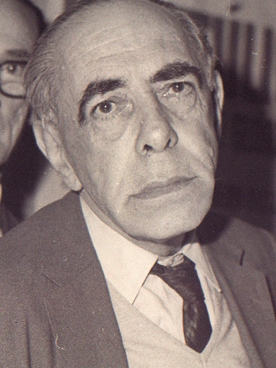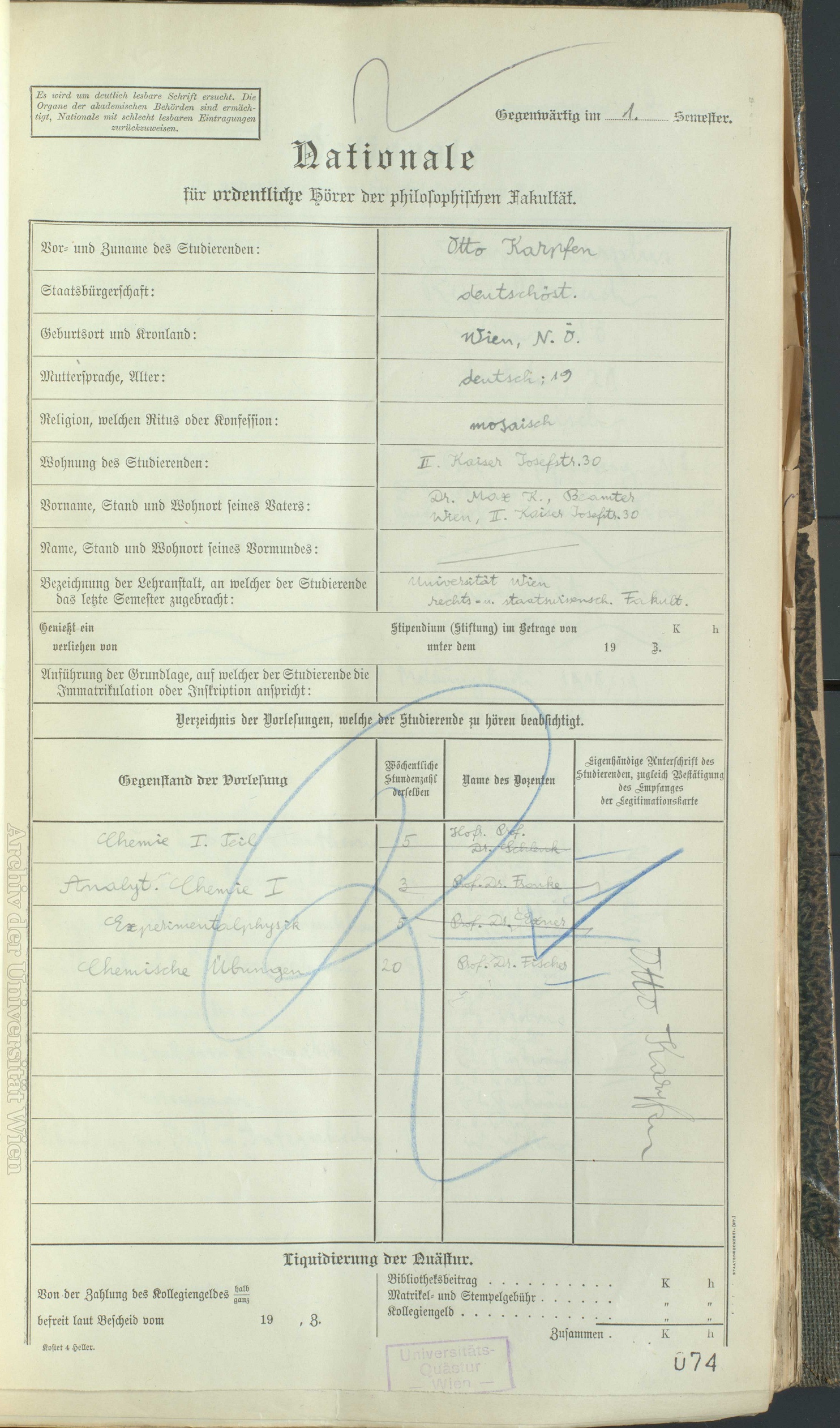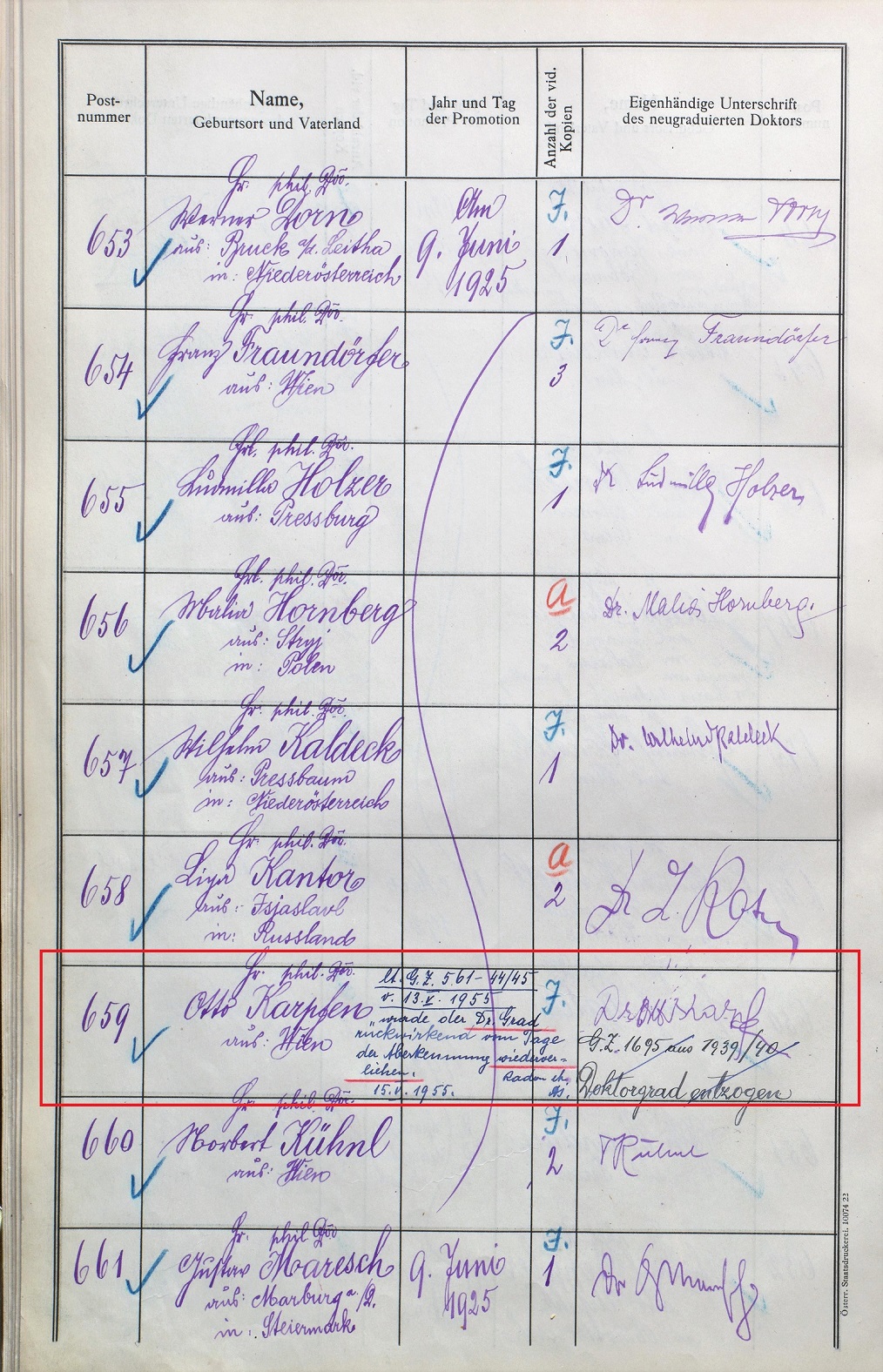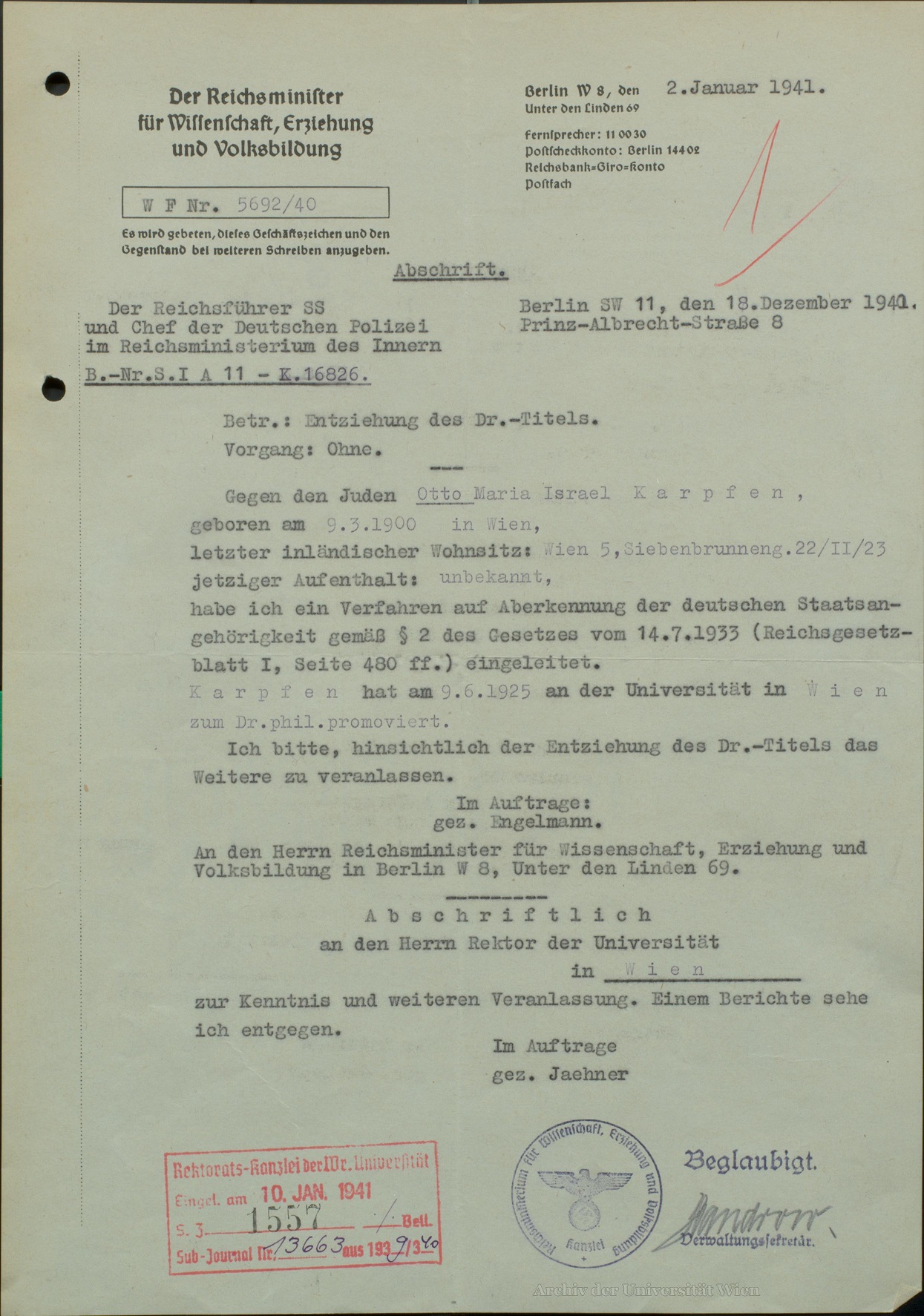
| Born: | 03-09-1900 |
| Faculty: | Philosophical School |
| Category: | Deprivation of academic degree |
Otto Maria KARPFEN [Otto Maria CARPEAUX] (born on March 9th, 1900 in Vienna, died on February 3rd, 1978 in Rio de Janeiro, Brasilien), had graduated at the Philosophical School at the University of Vienna in Chemistry on June 9th, 1925 with the academic degree 'Dr. phil.' (dissertation: 'Über die Hypohirnsäure, ein neues Triaminomonophosphorsulfadit aus Menschenhirn').
Later he studied sociology and philosophy in Paris/France, comparative literature in Naples/Italy and politics in Berlin/Germany.
He worked as a journalist and literary critic in Vienna, converted from Jewish to Roman-Catholic religion and was engaged for the political Catholicism in the interwar period (participation in the journal 'Christlicher Staendestaat', publication 'Österreichs europaeische Sendung. Ein aussenpolitischer Überblick.' 1935), partly with the pseudonyms Otto Maria Fidelis and (Dr.) Leopold Wiesinger.
Karpfen emigrated to Belgium in 1938, in 1939 to Sao Paulo and Rio de Janeiro/Brazil, where he chaged his name to Carpeaux. He was deprived of his academic degree on February 28th, 1942 with the racist argument, that he as a Jew was not considered dignified an academic degree of a German university ('eines akademischen Grades einer deutschen Hochschule unwürdig').
In Brazil Otto Maria Carpeaux initially had to work as a simple rural worker, but quickly taught himself Portuguese. Eventually, through several contributions in newspapers, he became an established literary critic and later on one of the most important Brazilian literary scholars. He dedicated his first Brazilian book "A Cinza do Purgatório" to his first friends in Brazil, among them lyricists Manuel Bandeira, Jorge de Lima, Murilo Mendes and Carlos Drummond de Andrade, writers Graciliano Ramos and José Lins do Rego, literary scholars Álvaro Lins and Brito Broca, sociologist Gilberto Freyre and historian Octávio Tarquínio de Sousa. He was also a close friend of Aurélio Buarque de Holanda, the leading lexicographer of the country.
It took 13 years since the deprivation – and a very long time since the end of Nazism – until .
Visiting Vienna in 1953 he went to the rectorate of the University of Vienna on June 26 to ask for a copy of his doctoral diploma from 1925 that he was deprived in 1942. He was regranted his doctoral degree the same day and got a copy of his diploma. On May 15th, 1955, he was regranted the doctorate again as part of a mass action.
After a transition to the Brazilian left and a conflict with the military dictatorship that came to power in 1964, Carpeaux stopped his literary writings by 1968.
He died of a heart attack on February 3, 1978 in Rio de Janeiro.
Lit.: information from Bruno Mori, 2013; wikipedia; Deutsch-Brasilianische Beziehungen; Lateinamerikainstitut der FU Berlin; BOLBECHER/KAISER 2000; Marlen ECKL, "De Karpfen a Carpeaux": Otto Maria Carpeaux' Weg vom bekennenden Österreicher zum überzeugten Brasilianer, in: Weltanschauliche Orientierungsversuche im Exil / New Orientations of World View in Exile, Leiden (2010) 76, 209–226.
Herbert Posch


